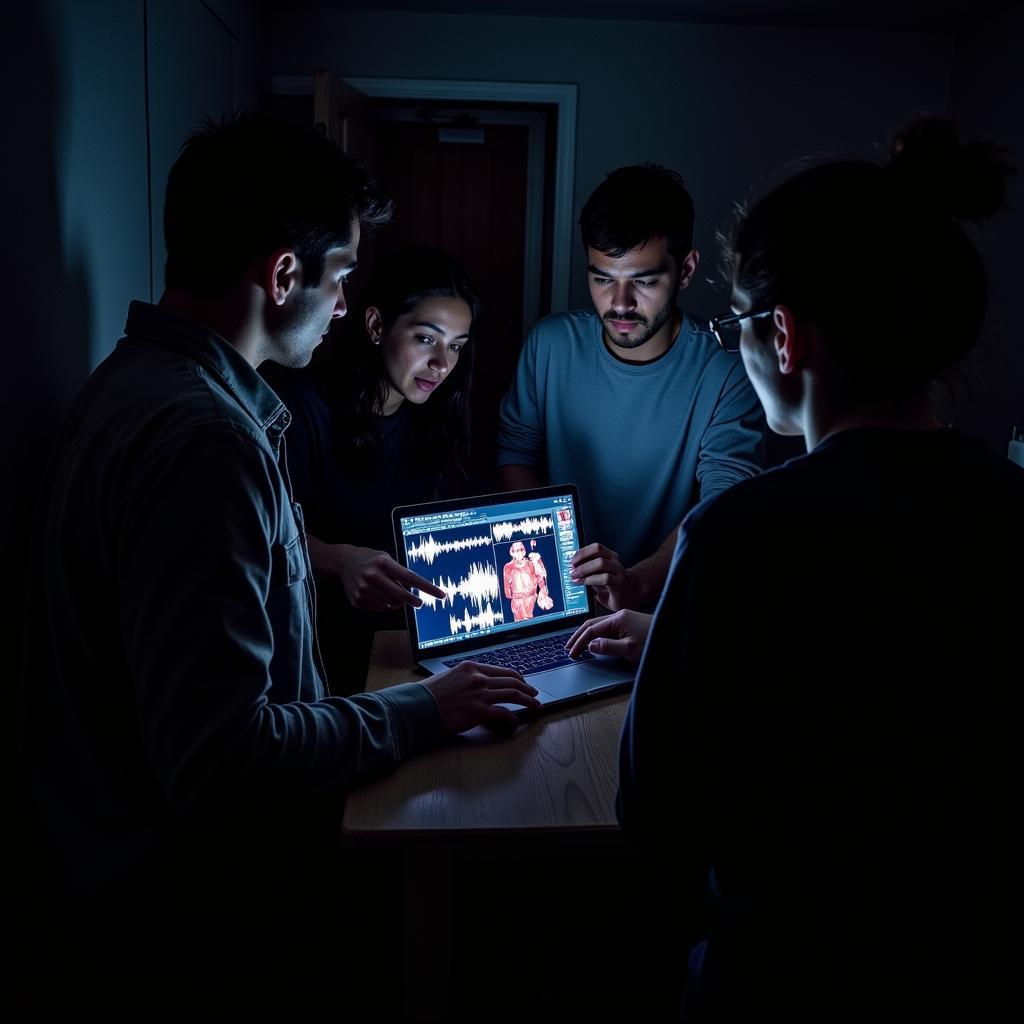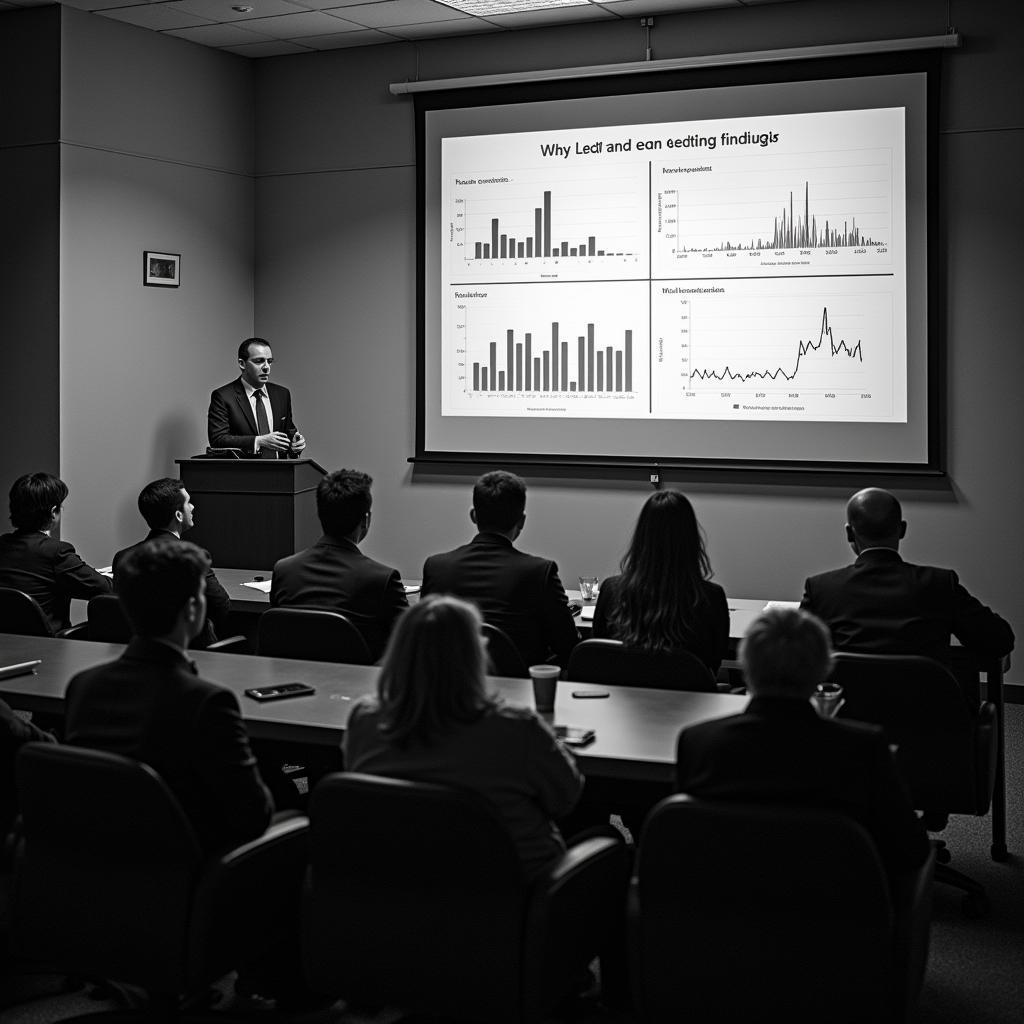A Lead Researcher in the paranormal field carries a heavy burden – the pursuit of evidence, the sifting of fact from fiction, and the relentless quest to understand the unexplained. Within the first few weeks of embarking on this journey, one realizes the sheer depth of the unknown and the critical role a lead researcher plays in navigating this enigmatic landscape. This article delves into the world of paranormal investigation, exploring the multifaceted role of a lead researcher, their essential skills, and the challenges they face.
The Multifaceted Role of a Lead Researcher in Paranormal Investigations
The lead researcher isn’t just a title; it’s a responsibility. They are the architects of paranormal investigations, designing the blueprint for exploration and leading the charge into the unknown. From meticulous planning and data collection to rigorous analysis and interpretation, they are the driving force behind every investigation.
Key Responsibilities of a Lead Researcher
- Developing Research Hypotheses: A lead researcher formulates testable hypotheses based on existing evidence and folklore. These hypotheses serve as the compass, guiding the investigation and providing a framework for data analysis.
- Designing Research Methodologies: Selecting appropriate research methods is crucial. This involves choosing the right equipment, determining the optimal investigation location, and establishing clear protocols for data collection.
- Managing the Investigative Team: A lead researcher oversees a team of investigators, delegating tasks, providing guidance, and ensuring everyone adheres to established procedures. Effective teamwork is paramount in paranormal research.
- Data Collection and Analysis: Gathering evidence is only the first step. A lead researcher must meticulously analyze the collected data, searching for patterns, anomalies, and any indication of paranormal activity. This process demands a keen eye for detail and a critical, objective mindset.
- Interpretation and Reporting: Once the data is analyzed, the lead researcher interprets the findings and prepares a comprehensive report. This report must be objective, clearly presenting the evidence and conclusions drawn from the investigation.
Essential Skills for a Lead Researcher
Becoming a successful lead researcher requires a unique blend of skills, encompassing both scientific rigor and an open mind.
Balancing Skepticism and Open-Mindedness
A lead researcher must walk a fine line between healthy skepticism and open-mindedness. While maintaining a critical perspective is crucial, dismissing possibilities without thorough investigation can hinder discovery. according to leadership researchers leadership This balance is essential for objective and unbiased research.
Strong Analytical and Critical Thinking Skills
Analyzing complex data, identifying patterns, and drawing logical conclusions are fundamental skills for a lead researcher. Critical thinking allows for objective evaluation of evidence, separating genuine anomalies from environmental factors or misinterpretations.
Effective Communication and Leadership Qualities
Leading a team requires excellent communication and leadership skills. A lead researcher must be able to clearly articulate research goals, delegate tasks effectively, and foster a collaborative environment.
 Paranormal Research Team Analyzing Data
Paranormal Research Team Analyzing Data
Challenges Faced by Lead Researchers
The path of a lead researcher is paved with challenges. The unpredictable nature of paranormal phenomena, coupled with the lack of definitive proof, can be frustrating.
Dealing with the Unknown
Paranormal investigations often delve into the unknown, where unexpected occurrences and unexplained phenomena are commonplace. A lead researcher must be adaptable and resilient, ready to face the unpredictable nature of their work.
Maintaining Objectivity
Objectivity is paramount. lead titan researcher sorotis wow Personal biases and preconceived notions can cloud judgment and influence interpretations. A lead researcher must strive to maintain an objective perspective, letting the evidence speak for itself.
The Scrutiny of the Public and Scientific Community
Paranormal research often faces skepticism and criticism from both the public and the scientific community. a researcher conducts a focus group to learn about attitudes A lead researcher must be prepared to defend their research methods and findings while remaining open to constructive feedback. lead titan researcher sorotis
 Lead Researcher Presenting Paranormal Findings
Lead Researcher Presenting Paranormal Findings
Conclusion
The role of a lead researcher in paranormal investigations is crucial, demanding a unique combination of scientific rigor, open-mindedness, and strong leadership skills. While the challenges are significant, the pursuit of understanding the unknown continues to drive these dedicated individuals, pushing the boundaries of our knowledge and challenging our perceptions of reality. The continued exploration of the paranormal relies heavily on the lead researcher, their dedication to unbiased investigation, and their unwavering commitment to unraveling the mysteries that lie beyond our current understanding.
FAQs
- What qualifications are needed to be a lead researcher?
- What are the most common tools used in paranormal research?
- How do you deal with skeptics?
- What is the most compelling evidence you’ve encountered?
- How can I get involved in Paranormal Research?
- What are some common misconceptions about paranormal investigations?
- How do you distinguish between natural phenomena and paranormal activity? nonclinical safety researcher gilead
Need help with your paranormal investigation? Contact us 24/7: Phone: 0904826292, Email: research@gmail.com, or visit us at No. 31, Alley 142/7, P. Phú Viên, Bồ Đề, Long Biên, Hà Nội, Việt Nam.